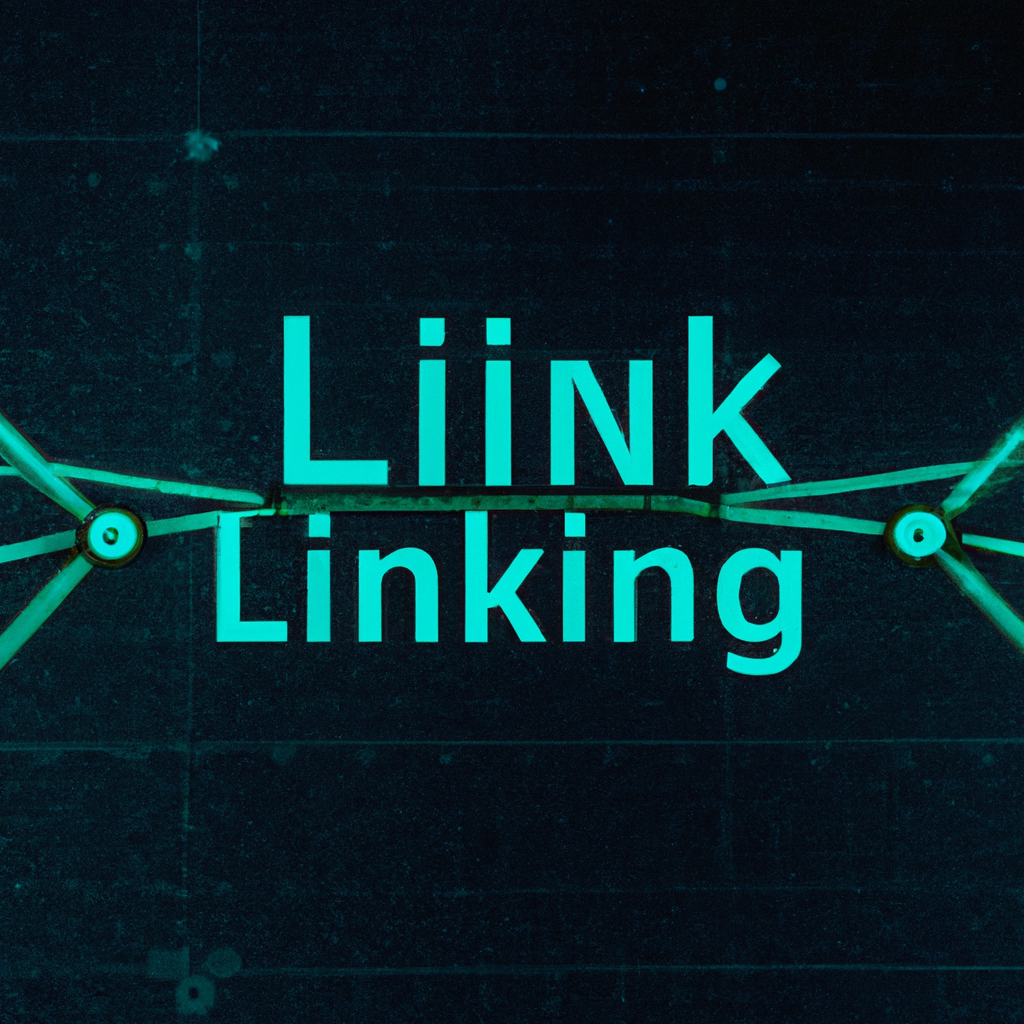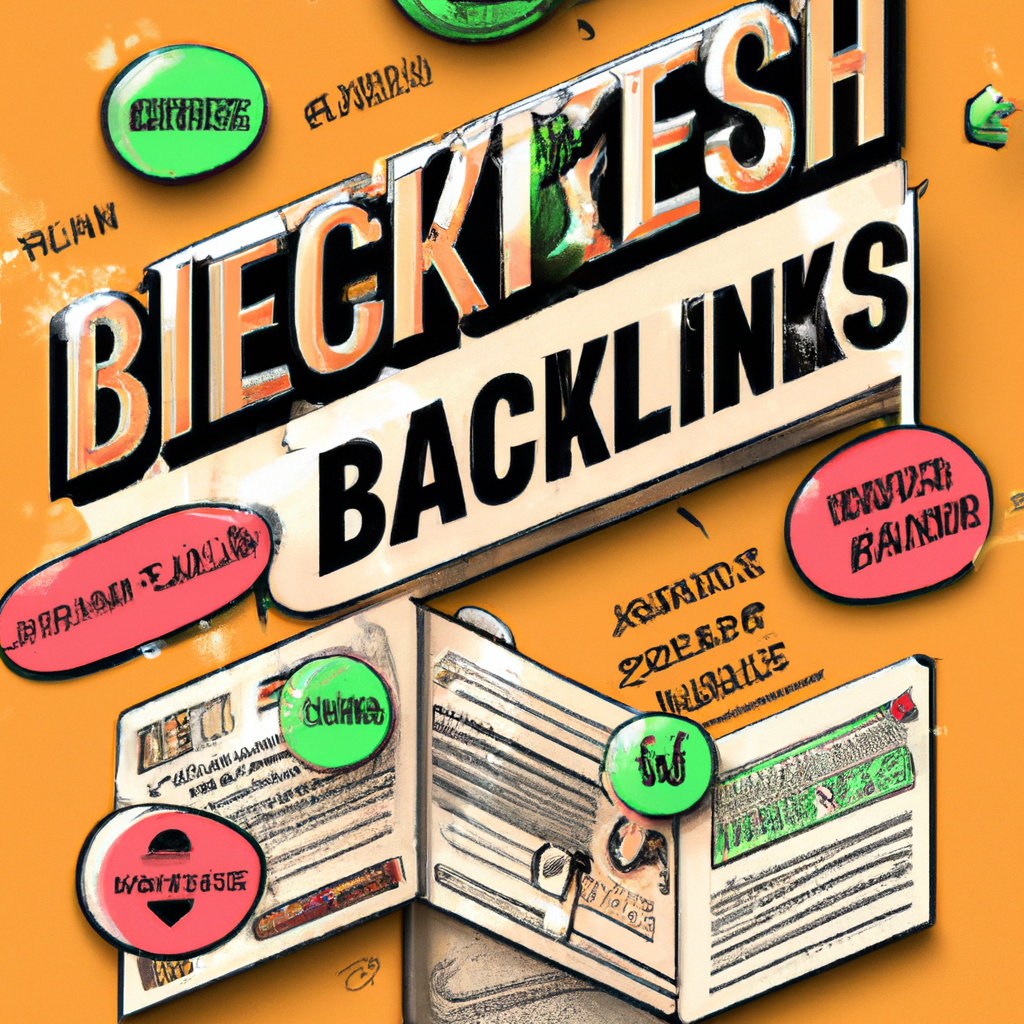Link Equity
Key Takeaway:
- Link equity refers to the value of a website’s links in relation to its search engine ranking. It is a critical factor in determining a website’s authority and credibility in the eyes of search engines.
- The importance of link equity in SEO cannot be overstated. It serves as a key ranking factor for search engines, and can greatly impact a website’s visibility and traffic. Effective management of link equity is essential for successful SEO.
- To improve link equity, focus on both internal and external links. Internally, ensure that your website is structured well and contains relevant content that links to other pages on your site. Externally, work to acquire high-quality backlinks from reputable sources through tactics such as guest blogging and relationship building.
Introduction to Link Equity
Link equity plays a significant role in the world of Search Engine Optimization (SEO). In this section, we will dive into the basics of link equity and explore its importance in the world of SEO. We will start by defining what link equity is and then move on to understanding its importance in improving search engine rankings.
What is Link Equity?
Link Equity is a key concept in SEO. It means the value and relevance given to a webpage by search engines like Google, based on the quality and quantity of inbound links pointing to it. It’s the authority a page can pass to other linked pages through links.
High-quality backlinks from respected sources can increase organic traffic and visibility. Internal link equity refers to links between two pages on the same domain. This strategy can improve user experience, navigation, and rankings for keywords.
Getting enormous amounts of low-quality links harms link equity as it doesn’t give enough authority or relevance. Producing great content and relevant backlinks is essential.
Anchor texts, link source subject matter & context, authority signals, and the time factor affect link equities. If links were currency, then link equity is the key to SEO success.
Importance of Link Equity in SEO
Link Equity is an important part of SEO that can’t be overlooked. It decides the authority and worth of a webpage. Search engines count the quality and relevance of links to a webpage when calculating page rank.
To create Link Equity, it’s vital to have a good internal linking structure and get top-notch external links. This factor can have a significant effect on a website’s organic traffic and search engine ranking position.
Having a top-notch internal linking structure helps spread PageRank through the website. It offers equal importance to all pages, not just a few. The aim is to give a positive user experience with useful and valuable information.
To increase internal Link Equity, each page should link to itself from other pages on the same site with clickable anchor text.
For authoritative external links, it’s better to get links from similar niche websites than random sources. Techniques like guest blogging and influencer relationship-building can be used to get high-quality external links.
Getting rid of irrelevant or low-quality backlinks is also necessary to improve link equity. It’s important to diversify backlinks, ensuring that no-followed links don’t exceed do-follow links.
To sum up, Link Equity is very important in SEO. It’s a factor in deciding a webpage’s authority and value. Hence, it’s essential to have a sound internal linking structure and get top-notch external links to increase a website’s organic traffic and search engine ranking position.
Basics of Link Equity
Link equity is a crucial factor to determine the success of your website’s search engine optimization strategy. In this section, we will discuss the basics of link equity and explore the two sub-sections – “How Link Equity Works” and “Factors That Affect Link Equity”. Understanding the concepts and mechanics of link equity is essential to improve your website’s online visibility and search engine rankings.
How Link Equity Works
Link Equity is an essential part of SEO practices. It is the value that is passed through a hyperlink from one page to another. In other words, it is what determines the power of a link to influence search engine rankings and website authority. The way links interact is significant for establishing Link Equity.
This equity is based on many factors taken into consideration when assessing how important each link should be. These include website reputation, page relevance, anchor text, content quality, and website authority. It’s like a voting system for pages, where the number of backlinks determines the value of the page. Pages with high-value backlinks can rank higher in SERP, leading to more traffic and visibility.
Not all links are equal in building Link Equity. Do-follow links pass on more value than no-follow links, which do not help SEO efforts.
Therefore, understanding how link equity works is key for any successful SEO strategy. This includes creating good content, consistent outreach and guest blogging, optimizing internal links, and earning quality external links from reliable sources. Not doing so may mean missing out on growth and revenue opportunities in the competitive online marketing world.
Factors That Affect Link Equity
Link equity is determined by several factors. These are essential in evaluating a website’s relevance and usefulness in terms of sharing quality links.
Domain Authority (DA) is a major factor that impacts link equity. DA measures a site’s content value and credibility by analyzing its backlinks.
Page Authority also has a significant role in link equity. This measures the weightage given to a page when it is receiving traffic or building backlinks.
Relevance of linking pages is also important to consider. This reflects how well these pages match with each other in terms of keyword usage, niche, and web content topics. Anchor text is also essential. It provides info on the linked pages and helps SEO performance.
The trustworthiness of a website affects link equity. It shows how reliable a source is in providing information. Visibility on search engines also has an influence on link equity. If a website ranks high, it will get more organic traffic through search queries related to its keywords.
Low-quality interactions, such as paid-for manipulated link exchanges or irrelevant inbound links, can negatively impact link exchange factors. This prevents any potential benefits from healthy link equity evaluation parameters. [Moz]
Internal Link Equity
Internal link equity plays a critical role in boosting website ranking and generating organic traffic. In this section, we’ll explore the importance of internal links, how it impacts your website performance, and will provide some tactics on how to improve internal link equity. With the help of internal link building strategies, you can enhance the user experience, create an organized website structure, and increase page authority, which leads to higher search engine rankings and more visibility.
Importance of Internal Links
Internal links are vital for Search Engine Optimization (SEO). They are links that go to other pages within the same website. Internal linking creates a strong structure, making it easy for users and search engines to locate relevant content. It has many advantages, such as increased page authority, longer dwell time, improved click-through rates (CTR) and lower bounce rates. It also spreads link equity between pages, helping webmasters rank their most important pages higher on SERPs.
The number and quality of internal links have a huge effect on website performance. Anchor texts with keywords used in internal links helps search engine bots understand the page’s content. Connecting related pages on a website also improves crawlability, making it simpler for Google to list those webpages.
To strengthen internal link equity, website owners need to have a clear structure with categories and improved internal navigation that leads visitors throughout the website easily. Additionally, publishing new content related to older posts is an excellent way to optimize internal links between old and new posts. Lastly, analysing websites for broken or irrelevant links frequently can improve overall SEO performance by improving the user experience.
To sum up, internal links are essential for SEO and should not be underestimated. A well-constructed internal linking structure can greatly improve website performance and search engine rankings, making it simpler for users to find and engage with content.
How to Improve Internal Link Equity
For better internal link equity, it’s important to comprehend the significance of internal links. Internal links are hyperlinks on a webpage that take you to another page on the same website. They help spread link equity around the site and increase its credibility and visibility.
Here is a 5-step guide to follow:
- Do an Internal Link Audit: Start by finding and cutting out broken and unnecessary links. These can damage your website’s ranking.
- Utilize Descriptive Anchor Text: When linking internally, use descriptive anchor text. This assists the search engine algorithm to recognize the linked page’s content. It enhances UX and SEO.
- Create an Internal Linking Structure: Make a clear and direct internal linking structure. It should be simple to use and navigate between pages. A hierarchy based on relevancy and importance can benefit users and search engines.
- Prioritize Pages for Linking: Find pages that would gain from link juice, such as high-functioning product and service pages. Place them at the top of your linking efforts.
- Monitor and Track Results: Monitor related data with web analytics or tools like Google Analytics. This will help you accurately keep track of performance levels over time.
In addition to good internal linking, you also need quality external links from reliable websites pointing back to your site. They go together with high-quality content for excellent results. To improve your website’s link equity, look outside your own domain and focus on attaining quality external links.
External Link Equity
In the world of search engine optimization (SEO), external link equity plays a crucial part in determining a website’s visibility on search engines. In this section, we’ll delve into the importance of external links and how they impact a website’s link equity. Additionally, we’ll explore effective strategies to acquire external link equity for improving a website’s search engine rankings. The significance of this topic cannot be overstated, as search engines value external links as a key signal of a website’s authority and trustworthiness.
Importance of External Links
External links are key for website SEO success. Having other websites link to yours shows its value and relevance. This boosts credibility, helping to get higher ranking on the search engine results page (SERP).
Besides improving SEO, external links bring referral traffic. People can come to your website from other sources other than search engines. It’s a great way to reach new people and increase your online presence.
To acquire external link equity, you need to make high-quality content others will find useful. Building relationships and doing outreach can get backlinks from trustworthy websites with strong domain authority. You can also collaborate through guest blogging and expand reach.
It’s important to link to reliable sources which match your content. Plus, the relevance of the linking pages affects SEO.
Track all external links to keep a clean profile and detect negative SEO tactics against your site.
Time to get external link equity and enhance your website’s SEO performance!
How to Acquire External Link Equity
Want to up your website’s rankings and get more traffic? Then acquiring external link equity is key. This is when relevant, good-quality links come from respected sources. Here’s a 3-step guide to help you get it.
- Pick High-Quality Websites. Find sites that are related to your niche or industry. Go for ones like trade associations, universities, or government organisations. These often have higher authority, which helps with your website’s credibility.
- Create Valuable Content. Now you know the websites, create content that’s relevant to their audience and links back to your website. This could be infographics, blog posts, or research. The better your content, the more chance of getting a backlink.
- Reach Out. Email the websites and request a backlink. Customise your emails and explain why your content is valuable to their audience. Don’t spam or use automated tools as this can damage your reputation.
Getting external links takes time and effort, but it’s worth it. This will increase your website’s domain authority, meaning better rankings in search engines. So, follow these steps and get some external link equity today!
Common Issues with Link Equity
Link equity is vital for boosting your site’s ranking on search engines. However, there are certain challenges you might face while optimizing your website’s link equity.
In this section, we’ll explore the common obstacles that impact your link equity and how to overcome them. We’ll dive into specific sub-sections like:
- Identifying and removing irrelevant links
- Addressing unindexed pages
- Understanding the impact of No-follow links
By incorporating these strategies into your link building approach, you can ensure your website is optimized for optimal link equity and ranking.
No-follow Links and Their Impact
One key point in grasping link equity is the impact of no-follow links. These hyperlinks inform search engines not to follow them, and don’t pass on link equity to the linked site. These links still permit users to access the linked site, yet, unlike do-follow links, they don’t have the same effect on SEO.
No-follow links can alter a website’s overall link profile and domain authority, as they don’t aid the transfer of authority from one page to another. This is noteworthy because one of the main advantages of link building is improving domain authority, which consequently upgrades search engine rankings. Therefore, webmasters should watch their no-follow links and make sure they aren’t weakening their link equity by having too many no-follow backlinks.
In addition to monitoring existing no-follow links, it’s critical for webmasters to understand how inbound backlinking functions and concentrate on getting high-quality do-follow backlinks. By obtaining inbound do-follow backlinks from esteemed websites with a high domain authority, sites can enhance their own domain authority and raise their chances of ranking higher in search engine results pages (SERPs).
Don’t let irrelevant links take you down. Cut them loose for improved SEO success.
Identifying and Removing Irrelevant Links
SEO requires proper removal of irrelevant links. To get the most out of link equity and a higher search engine ranking, you must understand which links are valuable and which aren’t.
As an SEO specialist, it’s important to analyze your website’s backlink profile. This means recognizing and removing low-quality and spammy links, and also those that come from sites unrelated to your content.
Cleaning up the irrelevant links can enhance link equity by cutting down the amount of bad links pointing to your site. This will make your site more visible to potential customers and help its ranking.
Not all no-follow links are bad. Even though they don’t boost link equity, they can still drive traffic and boost your brand’s visibility.
By understanding which links are irrelevant, you can manage your backlink profile and make sure it supports your SEO plan.
Addressing Unindexed Pages
Unindexed pages can be a major issue for a website’s visibility. To improve rank and visibility, it’s essential to address them. To do this, you must identify the root cause. Common reasons include technical issues like HTML coding errors or no proper metadata. It might also be low-quality content or spammy backlinks.
Fix the technical issues. Remove irrelevant links. Analyze backlink profiles. Create valuable content that attracts organic backlinks.
These strategies will help boost link equity and SEO. Address unindexed pages. Implement these strategies. Watch your website soar to the top of search engine results!
Actionable Strategies for Link Equity
With the right strategies, gaining link equity can greatly improve your site’s visibility and search engine rankings. In this section, we’ll explore some actionable ways to increase link equity, including:
- Creating relevant and valuable content
- Outreach and relationship building
- Guest blogging and collaboration
By implementing these techniques, you can optimize your link building efforts and take your website to the next level.
Creating Relevant and Valuable Content
Successful SEO and link equity rely on creating relevant and valuable content. This means developing content that speaks to the target audience, captures their interest, and offers useful information. It also helps with higher visibility on search engines, leading to better rankings and more traffic.
To create relevant content, there are a few things to consider. Align with the website’s theme/niche, research accurately, and structure using headings/bullets/lists. Avoid stuffing keywords as it has limited effect and can discourage readers. The focus should be on helping users solve problems.
Pro Tip: Long-form content helps provide more comprehensive solutions and increases linkability potential. For outreach, build relationships and remember it’s not just about the link – it’s about the connection.
Outreach and Relationship Building
Outreach and relationship building can help you gain link equity. Reach out to other sites in your industry and build relationships. Offer guest posts or ask for links. Developing rapport can lead to natural backlinks. You may also get collaboration opportunities.
Conduct research on potential partners. Look for sites with high domain authority scores and relevance to your sector. Personalize outreach messages and explain the value of joining forces.
Tip: In conversations, show mutual benefit rather than just asking for a favor. Show interest in their work and how collaborating could benefit both sides.
Collaboration is essential in guest blogging. Like a harmonious duet, it’s all about matching your content with others.
Guest Blogging and Collaboration
Collaborating with other businesses like yours can create link building chances. Both of you gain more traffic and more referrals. Guest blogging and collaboration help build your brand and bring in new clients.
Do research before collaborating. Make sure it’s relevant and works for your business. Be consistent in branding and messaging to show you’re credible.
To reach out, use emails or social media. Make sure links are working and not no-follow when you guest blog or collaborate. That’s one of the best practices for link equity.
Conclusion: Maximizing Link Equity for Successful SEO
SEO success relies on many things. One of the most important is maximizing link equity. Building high-quality backlinks and strengthening the website’s internal linking structure are essential to this. This will make search engines see the website as a reliable source, leading to better ranking.
To maximize link equity, one must understand “link juice“. It’s the value or authority that links pass from page to page. Site owners can spread link juice by adding relevant internal and external links, increasing visibility.
It’s also important to keep track of backlink quality. Check them regularly to make sure they won’t hurt the website’s reputation. Appropriate anchor text and linking to good sources can boost link equity.
Maximizing link equity is an ongoing process. It needs constant effort and attention. Link building and internal linking strategies should be prioritized. Having a diverse backlink profile helps improve link equity and chances of better ranking, according to an article on neilpatel.com.
To sum it up, mastering link equity is key for successful SEO. Build high-quality backlinks. Optimize internal linking strategies. Keep tracking the website’s backlink profile. This will maximize success potential.
Five Facts About Link Equity:
- ✅ Link equity, also known as “link juice,” is the idea that reputation and authority are passed when one page links to another, sharing some of the SEO value between pages. (Source: loganix.com)
- ✅ Link equity can be passed through both internal and external links, but external links provide more ranking value and equity than internal links. (Source: wordagents.com)
- ✅ Only do-follow links can pass link juice, while no-follow links pass no equity because search crawlers ignore them. (Source: growhackscale.com)
- ✅ Google uses links alongside other ranking factors to determine search engine rankings; PageRank was the first algorithm used by Google to order search results, ranking pages by the number and quality of links to each page. (Source: loganix.com)
- ✅ Quality links are more important than quantity; acquiring link equity from external sources is crucial for organic visibility. (Source: wordagents.com)
FAQs about Link Equity
What is link equity?
Link equity refers to the value and authority passed from one page to another through links. It can be passed through both internal and external links.
What determines whether a link passes equity?
Factors that determine whether a link will pass equity to a website include: whether the link is no-follow or do-follow, the relevance of the link, whether the page is crawlable, the authority of the website, and the position of the link on a web page.
Do all links pass equity?
No, only do-follow links can pass link juice, while no-follow links pass no equity because search crawlers ignore them.
How can I improve my link equity?
Look to acquire link equity from external sources first. Quality links are more important than quantity. Site linking to your page should have high authority and be crawlable to pass link equity. Internal links are still important, especially if the domain has high authority and the page has internal links from high-value pages. Using ahrefs tutorials, FAQs and Help center learn how to use their platform to improve link equity.
What is the Beginner’s Guide to SEO?
The comprehensive Beginner’s Guide to SEO is available to learn the basics of SEO. It covers a wide range of topics including link equity and can work wonders improving your webpage SEO.
What is the value of link equity or “link juice”?
When one page links to another, some of the linking page’s reputation or “link juice” flows to that linked page. Both internal and external links pass link equity, and a link’s value is determined using link building metrics like topical relevancy, anchor text, and page strength.







